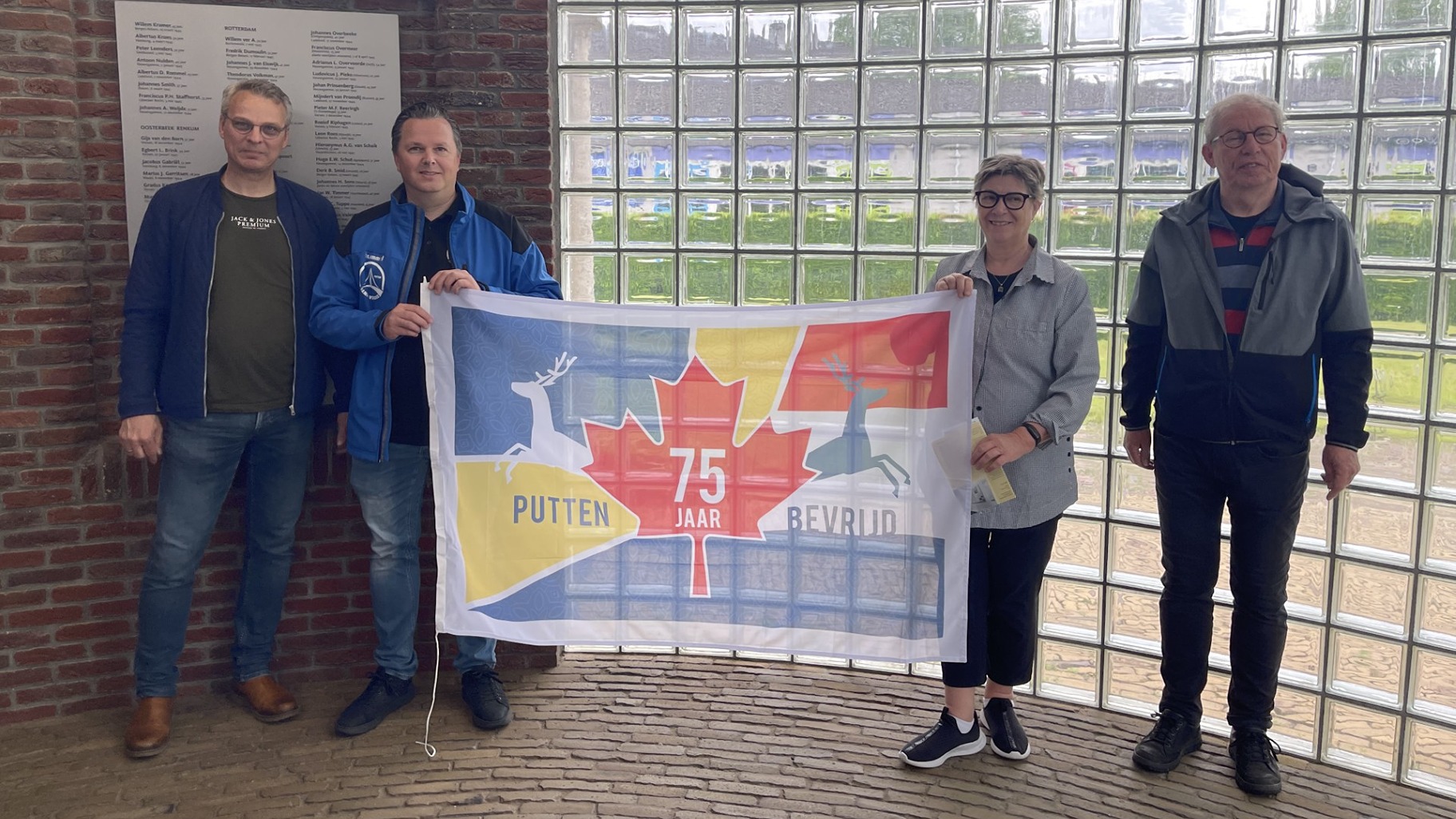Putten townspeople gifted U of GH a flag commemorating Canada’s liberation efforts

“It is very important for us to not only remember those sacrifices, but to further learn about the importance of the relationships we have with other countries, and also how to further prevent [conflict] in the future."
The University of Guelph-Humber (U of GH) acknowledges that it’s vital to reflect on the sacrifices Canada’s war veterans have made in fighting for freedom. This includes providing learning experiences to students about this important history.
During a springtime visit to France and the Netherlands, U of GH Study Abroad students had the opportunity to learn about Canada’s role in Europe during World War II (WWII). The Study Abroad course, The Netherlands and Normandy (France): From Screen to Shore: The 80th Anniversary of D-Day, immersed students in wartime history (with a focus on WWII) as they visited parts of France and the Netherlands to learn about the past, including Canada’s Nazi liberation efforts and how the media documented WWII.
This trip included a tour of various towns in the Netherlands that Canadian soldiers liberated from Nazis forces, such as Putten, which they freed in 1945. Moreover, the students were pleasantly surprised to be part of a special tribute in Putten during a tour of the town, which suffered a brutal Nazi reprisal for its residents' resistance efforts. Locals honoured the group with remarks and a commemorative flag, displaying their ongoing gratitude for its liberation and its powerful tie to Canada.
“I think there was significant emotion, and you feel the impact…even though it happened so long ago, [the effects of war] are still resonating today,” fourth-year Media & Communication Studies (MCS) student Chantal Soutar said, who went on the trip during the end of her third year.
The flag was produced in 2020 to commemorate the 75th anniversary of Putten’s freedom. For MCS Chair Kathy Ullyott, who also attended the trip, receiving this flag was like “physically embracing history.”
“Visiting the Netherlands to walk in the footsteps of those troops was a profoundly moving experience, especially in Putten, which, though a tiny community, exemplifies the worst of Nazi atrocities,” Ullyott said.
Putten was tragically known as the Village of Widows because Nazis rounded up the men to take to concentration camps, leaving women and young children behind. For students to understand the weight of Canada’s contribution, receiving the flag felt like an “honour.”
“I didn't fight in the war. I don't feel like I deserved to be there. But it was really cool to see how they were happy that we as a younger generation, wanted to learn and we wanted to be there,” second-year Justice Studies student Risa Van Lenthe said, who went on the trip during the end of her first year.
David Costa, a fourth-year MCS student who was wrapping up his third year during the trip, stressed the importance of commemoration and never forgetting this history. He said this is something we must look at with “reverence.”
“It is very important for us to not only remember those sacrifices, but to further learn about the importance of the relationships we have with other countries, and also how to further prevent [conflict] in the future,” Costa said.
Costa added that visiting Putten and reflecting on Canada’s efforts to liberate communities from Nazi forces was a source of great pride.
“We have a responsibility to look back and learn from the past, to learn from history. And it can be put into practice now more than ever, with a lot of the political turmoil that is going on around the world, it is important for us to stay educated,” Costa said.

